

Comments were submitted to the EPA from NWRA/ SWANA regarding the EPA’s Advance Notice of Public Rule Making (ANPRM) for revisions to Subtitle D, and in particular potential revisions regarding the bulk liquids addition. Subtitle D prohibits bulk liquids additions with the exception of leachate recirculation, and the RD&D permit process allows bulk liquids. Bob Gardner of SCS Engineers was involved in the development of the joint NWRA/SWANA comment letter.
EPA has indicated that they are considering adding a “wet landfill” definition to Subtitle D; however, the Industry strongly advised against doing so. The letter addresses this issue and the reasons for recommending against a separate “wet landfill” definition.
Industry Association’s Comments
Wendell, a Senior Project Professional in the SCS Engineers Sacramento office became interested in photography 35 years ago. He had broken his ankle and needed something to do because he felt grumpy not being able to play tennis. His tennis partner loaned him a camera, some film, and his dark room.
Wendell was hooked.
Wendell’s beautiful photos capture the reason we work with our clients to protect our environment. See a few pieces of his organic work, and look for more soon.
Mr. Minshew has over 30 years of engineering experience. He specializes in civil engineering services in the planning, design, permitting, and construction management of solid and hazardous waste facilities. He is a licensed Professional Engineer in California and Nevada.
Thank you for sharing, Wendell.
For many oil and gas waste processing and disposal facilities, and water midstream facilities, groundwater monitoring is mandatory. The ongoing quarterly monitoring well sampling is a long-term operating expense that presents opportunities for cost reduction by employing new sampling technologies that reduce labor time and cost.
Conventional monitoring well sampling traditionally requires bulky and expensive pumps and support equipment. Time-consuming to use, these also require specialized training and are prone to mechanical failure in oil basin extreme weather conditions. Straightforward, lower-tech methods are available that can substantially lower field costs; in some cases, by up to 50 percent.
Best Practices
If your sampling results indicate potential problems, we recommend bringing in groundwater analytic expertise; this is where you want to concentrate your environmental compliance resources.
It is essential to conduct one or more background sampling events before a facility opening to interpret sampling results that may reveal facility issues. At SCS, we’ve seen many documented cases of facilities that unknowingly were operating over groundwater already contaminated by other nearby facilities or tainted by naturally occurring petroleum in the subsurface.
Another cost-reduction best practice is the application of statistical analysis to the lab results. While not always required by regulators, there are well-proven analytical tools that can answer questions about the source of apparent anomalies in the data. Ongoing application of these tools—even if only done internally—can reveal problems early and solve others before they become a liability.
O&G Environmental Services and Permitting
Jim Lawrence, SCS Engineers professional hydrogeologistAbout the Author: James Lawrence of SCS Engineers is a hydrogeologist with 25 years of experience in all aspects of the distribution and movement of groundwater in the southwestern and central portions of the U.S. Jim leads the groundwater monitoring program for SCS in the Permian Basin area. He works to resolve problems that arise with groundwater monitoring, including assessment monitoring, corrective action, landfill and natural gases, and alternate source demonstration issues.
His responsibilities include supervising the sampling, data reporting, and statistical analysis. His job experience includes extensive permitting-related hydrogeological characterizations, the design and implementation of groundwater monitoring systems, assessing groundwater geochemistry, soil and groundwater assessment investigations, risk reduction rules, groundwater modeling, design and implementation of numerous large dewatering systems, design of water supply wells, managing waste injection wells, managing CERCLA and RCRA investigations, and waste analysis/characterization programs.
Mr. Lefebvre, a Professional Engineer in nine states recently joined the SCS Environmental Services team. He brings over three decades of experience as an environmental engineer and consultant specializing in soil and water remediation services for both government and business sectors.
Mr. Lefebvre manages remedial action plans, multi-media contamination assessments, industrial wastewater treatability studies and treatment system designs for SCS’s clients. He serves as an expert witness as well. He has designed and managed industrial wastewater treatment systems for the pharmaceutical industry; successfully remediated groundwater at petroleum Superfund sites; restored soil and groundwater at several RCRA sites; and was the Engineer of Record for a South Florida Water Management District (SFWMD) project to protect the Everglades National Park.
Welcome to SCS!
Learn more about SCS Engineers work:
An environmental insurance claim is simply the response and mitigation of an environmental issue or event paid for by an environmental insurance policy. Similar to an auto or home insurance claim, a company or individual purchases this type of policy to protect them in case a matter arises about their facility, operations, or property resulting in a regulatory requirement for investigation and remediation; forming the basis for a submitted claim. Such responses cost money, often a lot of it, and the environmental insurance policy is there to pay for the costs associated with the investigation and remediation of any environmental issues.
Any environmental issue can result in an environmental claim, so it is essential that you have the right policy in place to cover a particular claim. Typical issues or events include:
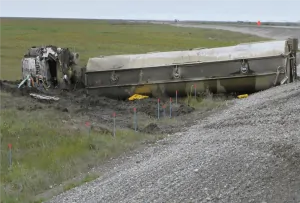
Insurance clients submit notice to the insurance company that an environmental issue occurred or was discovered which requires investigation and corrective action. The onus is on the client to provide sufficient information to substantiate a claim submittal. The insurance company reviews this information in their evaluation of coverage for the issue under the policy.
When a new claim is submitted to the insurance company, the client must provide information that substantiates that an issue exists and that further investigation and corrective action is required. Often their substantiation consists of the initial technical details about the nature and extent of the environmental problem. Claims analysts generally have a strong legal background but may lack technical environmental expertise; this is when insurance support services become valuable. The following paragraphs summarize each step in the process and how SCS insurance support assists claims analysts through the process.
Once the insurance company receives a notice of claim, they determine whether the client’s policy provides coverage for the specific issue or event that constitutes the claim. A claims analyst evaluates the specifics of the claim to determine if the associated details and circumstances fall within the specifics of the client’s policy. If so, coverage is usually accepted. If not, coverage is generally denied.
SCS’s role is to provide an evaluation of the technical aspects of the claim so that the claims analyst can take the distilled facts and compare them against the specifics of the policy; often called a “Source and Timing” evaluation. Take, for example, an underground storage tank (UST) release at a gasoline station. In this example, free product (gasoline) is observed in an on-site monitoring well where no free product has previously or recently been identified.
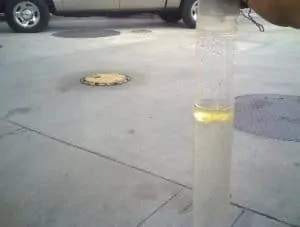
The station owner or their environmental consultant reports the apparent new release to the regulator, and a confirmed discharge is recorded. The property owner than notifies the insurance company of a gasoline release to the environment.
As part of the “Source and Timing” evaluation, SCS’s insurance support reviews tank system leak detection and inventory records, tank system tightness testing records, previous groundwater monitoring data, reports of any earlier releases at the facility, and any other information or data about the facility and the subject release. The goal is to identify:
If enough information is available to make these determinations, then the claims analyst compares the SCS report to the coverage specifics and exclusions included in the policy; determining if the event is covered. The claims analyst will usually try to make a coverage determination on their own if the facts are relatively straightforward, but often that is not the case, and the assistance of insurance support services is necessary.
This process can be straightforward, such as in the case of a tanker truck rollover or industrial facility chemical spill, but is often more complicated when insufficient information is available to make a source and timing determination. In the latter case, the claims analyst issues a Reservation of Rights letter, stating that the insurer is not accepting or denying coverage at this time as the circumstances of the claim are still under evaluation and investigation.
Claims can be denied if the incident occurs before or after the policy period; if the source or type of incident are not included or are specifically excluded under the policy; or if the incident occurred because of the client’s negligence. If coverage is denied no further actions are generally necessary on the part of the insurance company. Whether a claim is accepted or denied is often more complicated than what we’ve discussed here.
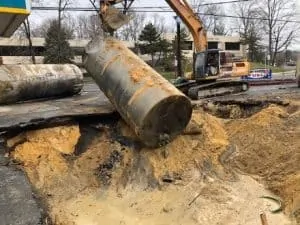
The claim is accepted; undoubtedly good news for the client. What happens now is that the claim becomes “Active,” requiring among other things for the claims analyst to set reserves. A reserve is an estimate of what the claim is going to cost the insurance company. Your insurance support consultant can provide a rough approximation of the estimated costs to achieve regulatory closure, which includes all expenses incurred from investigation through remediation, post-remediation monitoring and reporting.
Early in the life of a claim, these are preliminary estimates that are refined as a project progresses, often requiring the claims analyst to adjust their reserves; important to the insurance company as future reserves impact financial forecasts. Insurance support services will develop the cost-to-closure estimate based on all available information and data, as well as their professional experience on similar projects. The insurer wants the most experienced environmental consultants and engineers on the case because their estimates are more likely to be on target and identify potential regulatory issues or risks.
From the insurer’s standpoint, the primary goal is to maintain a high level of responsiveness to their clients and process requests for reimbursement against the claim. The role of your insurance support team can continue by managing quality control and evaluation of site-specific activities; ensuring that the investigation and cleanup are reasonable and appropriate given the environmental conditions at the site, all applicable regulatory requirements, and costs consistent with industry standards for recovery. The client and their environmental consultant are required to provide the insurer and the insurance support consultant documentation of the work as follows:
Over the life of a claim, insurance support may correspond with the project consultant on behalf of the insurer, conduct site visits, and be asked to participate in meetings, conference calls, and mediations. The overall goal of your insurance support consultant is to assist claims analysts in closing a claim in the most time-efficient, cost-effective manner possible within all regulatory rules and guidelines.
Once an active claim−environmental project has achieved regulatory closure, the claims analyst begins the administrative process of closing the claim. From SCS’s insurance support standpoint, all that remains is to obtain the appropriate documentation from the regulator confirming that the subject project is approved for closure and that no further actions are required.
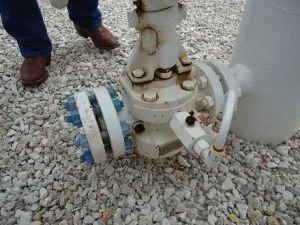
There are other circumstances which may result in closing a claim, such as exceeding the maximum total cost that can be paid out by the policy, non-compliance with policy requirements, or new information coming to light which results in a change in coverage position by the insurer. In some cases, such as when there is a change in coverage position or the cause of the issue can be attributed to a third party equipment failure, the insurer may seek to recover costs expended from the client and third-party policies. That process, called subrogation, may require the expertise of your insurance support specialist and at times their testimony as an expert witness.
There are several ways that SCS helps our insurance clients and other clients. The involvement of insurance companies is becoming more pervasive throughout environmental consulting and engineering in all business sectors. The combination of SCS’s industry expertise, contacts associated with our insurance support services, and our Federal, State, and local level regulatory expertise brings more knowledge and efficiency to each project. SCS offers a wide range of engineering and environmental services, a national presence, and a positive established industry reputation.
Our clients appreciate being able to draw upon our insurance-related expertise to assist them with their submittals, interpreting insurance requirements, and liaising with insurance companies as part of our core capabilities.

Mr. Michael Schmidt is an accomplished industry leader with nearly 30 years of progressively responsible experience in the environmental consulting and environmental insurance industries. He has specific expertise focusing on the evaluation of environmental risks and liabilities associated with insurance claims and underwriting, site investigation and remediation, due diligence, and project management.
Feel free to use our website to share our blogs, whitepapers, case studies, events, and news. SCS respects your privacy.
Before the Court: EPA admits that it has failed to meet its nondiscretionary obligations to implement the Landfill Emissions Guidelines, as compelled by the CAA. The only questions before the Court were whether the Plaintiffs have standing and, if so, how long to give EPA to comply with its overdue nondiscretionary duties under the Landfill Emissions Guidelines. The Plaintiffs are the States of Illinois, Maryland, New Mexico, Oregon, Rhode Island, California, Vermont, and the Commonwealth of Pennsylvania.
Ruling: Plaintiffs have standing, and the EPA must approve existing submitted plans by September 6 and issue the federal plan by November 6.
Impact on Landfill Owners/Operators: This will create some confusion, as landfills will be working on getting revised rules in place while at the same time start complying with the old EG rule. We are already doing that with XXX sites, but this ruling adds complexity. If EPA keeps to the schedule and we have final approved revised rules by March 2020, landfills won’t have to do as much under the old rules before new ones take effect.
Contact your SCS Project Manager for more information, email us at , or follow SCS on your preferred social media.
Next year… 2020 will be the 30th year of SCS Engineers keeping roads in Madison, WI. clean.
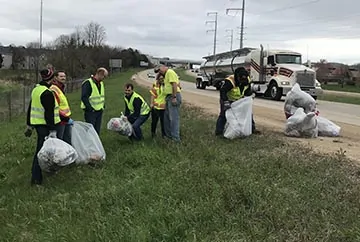
Jeffrey Reed, P.E. is now leading SCS Engineers business operations in Texas, including all environmental consulting, landfill, landfill gas, and solid waste business. He commences his responsibilities immediately, under the title Business Unit Director, and is managing the staff and business operations of four offices. His primary office is located in Houston, Texas.
Jeff, a Professional Engineer, licensed in Alabama, Florida, Louisiana, Minnesota, Mississippi, New Mexico, North Carolina, Oklahoma, South Carolina, and Texas has a broad range of environmental expertise. He has provided design and consulting services for projects in 26 states across the U.S., Canada, and Mexico.
Jeff is a Vice President of SCS Engineers and a National Expert on Landfill Design and Construction Quality Assurance for the firm. He has over 30 years of experience working in the solid waste industry. His project experience includes stormwater management, liquids management and leachate control, erosion control, hydrogeological/hydraulic analysis, landfill design and permitting, geosynthetic lining and cover systems, stability analysis, and construction quality assurance. He is a member of the American Society of Civil Engineers and the Solid Waste Association of North America.
Kevin Yard, PE, BCEE, SCS’s former Texas Business Unit Director, will continue to support key projects in Texas while he manages clients nationwide that are investing in new infrastructure and processes compatible with their firms’ environmental climate goals.
“Over his ten+ years with SCS, Jeff has demonstrated his leadership and capabilities resolving complex environmental challenges,” said Kevin Yard. “Jeff provides the standard of quality and services to our clients who rely on SCS to support their business operations while meeting rapidly-changing air, water, and soil compliance standards.”

Depi holds a BA from UC Irvine and is active in the Society of Marketing Professional Services, Association of Proposal Management Professionals and the Business Development Association of Orange County. She is also a former member of the Professional Environmental Management Association.
Jed Douglas, a senior project advisor, brings more than 20 years of experience in project management, health and safety, air quality and more. He will direct and develop SCS’s industrial hygiene practice in the Southwest region leading business development and client service, managing projects, and managing staff. Jed is a certified industrial hygienist and safety professional, and an accredited U.S. Green Building Council LEED Professional.
In the community, Jed has served on the board of the Big Brothers and Big Sisters of the North Coast, the board of the Humboldt Area Saltwater Anglers, and as Editor of the Humboldt Bay Mycological Society newsletter.
Welcome to the SCS team – driven by client success!
A Facility’s Perspective into a Modeled PSD Increment Violation
Midwest Environmental Compliance Conference – MECC 2019
In 2005, dispersion modeling was conducted in Nebraska Bluff Road Landfill as part of the construction permitting process for the Lincoln Electric System Salt Valley Generating Station. The modeling results identified a Prevention of Significant Deterioration (PSD) increment violation at the Bluff Road Landfill resulting from activities associated with landfill operations. The model results predicted an increment violation for particulate matter less than 10 microns (PM10) at the landfill boundary, specifically for the short term 24-hour standard for PM10.
This SCS Engineers’ presentation by Tia Jeter, focuses on the experience of Bluff Road Landfill and the City of Lincoln, as the entities responded to the modeled violation, and provides highlights of the process required to ultimately resolve the increment violation and bring the facility into modeled compliance with the increment.
Resolving the modeled increment violation required coordination with multiple entities, including the local air permitting authority, the Lincoln Lancaster County Health Department (LLCHD), the Nebraska Department of Environmental Quality (NDEQ) and US EPA Region 7. To resolve the violation, facility emission processes, operational limitations, emission controls, model setup, and the compliance boundary was evaluated and revised numerous times. Initial modeling efforts conducted as part of the response utilized the Industrial Source Complex 3 Short Term (ISC3ST) model, which was the EPA-approved dispersion model at the outset of the project. Due to the prolonged timeline of the project, the final compliance modeling scenario submitted to the regulatory agency was completed using AERMOD which is now the EPA-approved dispersion model.
Along the path to compliance there were multiple challenges, including negotiations on emission point modeling methods, clarification on the definition of ambient air as it relates to leased property, the requirement to create federally enforceable compliance requirements, the slow response and feedback from the regulatory authority (ies), and the bureaucratic “hold-up” of other facility projects until resolution of the violation was attained.

Tia’s presentation will provide an overview of the road to compliance for the Bluff Road Landfill from the beginning of the project to the resolution of the increment violation. Her presentation provides an insight into what other facilities may experience in the future as compliance with the National Ambient Air Quality Standards and PSD increment for PM10 and particulate matter less than 2.5 microns (PM2.5) becomes increasingly more scrutinized.